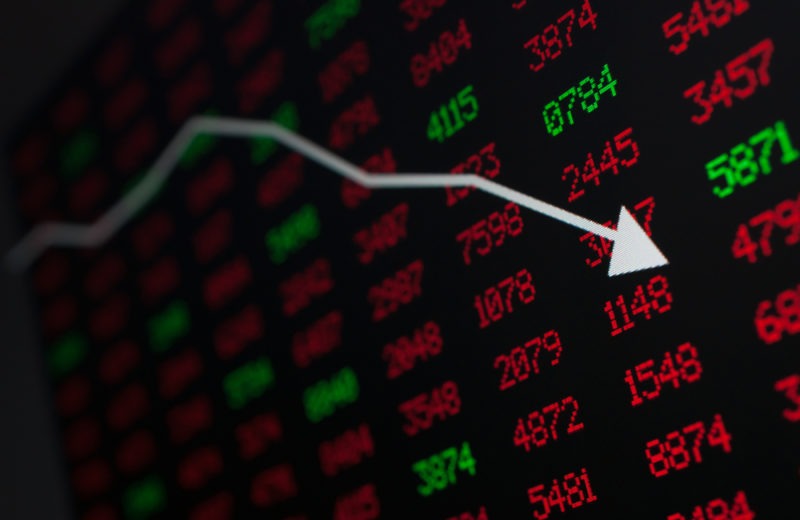The Asian shares faced a downward trajectory on Wednesday as concerns mount over China’s economic challenges, triggering broader implications for the global economy. Concurrently, uncertainties about the future of the US economy add to the cautious sentiment.
Regional Market Performance
Asian shares: Japan’s Nikkei 225 benchmark experienced a 1.1% decline in early trading, settling at 31,879.84. Australia’s S&P/ASX 200 followed suit with a 1.4% drop to 7,204.00. South Korea’s Kospi index dipped 1.2% to 2,539.48. Meanwhile, Hong Kong’s Hang Seng index slipped 1.2% to 18,364.11, and China’s Shanghai Composite lost 0.7%, settling at 3,153.43.
New Zealand’s Monetary Policy Decision
In New Zealand, the central bank left its benchmark interest rate untouched at 5.5% on Wednesday. The Reserve Bank of New Zealand’s monetary policy committee cited a decline in the headline inflation rate, although core inflation remained elevated. The committee emphasized that a sustained period of subdued spending would be necessary to alleviate inflationary pressures. Despite the decision, the New Zealand dollar experienced minimal movement, trading around U.S. $0.6.
Economist’s Perspective on US Consumer Spending
Clifford Bennett, ACY Securities’ chief economist, suggested that robust US consumer spending might be transitory and could eventually lose momentum. He attributed this to substantial sales efforts conducted by major retailers, both online and offline, which could potentially lead to the disappearance of the retail sales gains witnessed in the previous period. Bennett stated, “This could be the last of the good retail sales numbers for quite some time.”
Wall Street’s Reaction and China’s Economic Challenges
Wall Street experienced a notable setback as the S&P 500 declined by 1.2%, marking one of its sharpest drops since the spring. This slump followed the release of data indicating a deepening economic slowdown in China, the world’s second-largest economy. The Dow Jones Industrial Average plunged by 1%, losing 361 points, while the Nasdaq composite also sank by 1.1%.
China’s economic recovery, once expected to bolster the global economy following the removal of anti-COVID restrictions, has faltered significantly. The country unexpectedly reduced a key interest rate and skipped a report on the unemployment rate among its younger workforce. These developments have ignited concerns about the potential ripple effects on the broader global economy, thereby weighing on Wall Street. The August pullback follows a strong performance in the market during the initial seven months of the year, which some critics argued was excessive.
US Economic Resilience and Retail Sales Growth
In contrast, the US economy has demonstrated remarkable resilience despite higher interest rates. A recent report revealed that sales at US retailers experienced accelerated growth in July, surpassing economists’ expectations. Brian Jacobsen, chief economist at Annex Wealth Management, noted that US retail sales are robust, potentially fueled by credit card usage, and the American consumer continues to display signs of sustained activity.
The Federal Reserve’s Role: Emerging Market Stocks
While strong retail sales data signals optimism for the US economy’s growth trajectory and averted recession fears, it may also strengthen the Federal Reserve’s commitment to maintaining higher interest rates as a means to combat inflation.
Energy Market Impact and Market Performance
The energy market reflects the implications of China’s economic slowdown, possibly leading to reduced demand for oil and commodities. Benchmark U.S. crude experienced a 7-cent loss, reaching $80.92 per barrel. Notably, energy producers’ stocks were among the major losers in the S&P 500, with Exxon Mobil experiencing a 2.6% decline, which contributed to the index’s overall drop.
Best Day Trading Stocks/Biggest Stock Losers Today
The S&P 500 declined by 51.86 points to reach 4,437.86, while the Dow experienced a 361.24-point drop to 34,946.39. The Nasdaq also saw a decline of 157.28 points, settling at 13,631.05.
Bond Market and Currency Movements
In the bond market, the yield on the 10-year Treasury slightly rose to 4.21% from the previous day’s 4.20%. This movement has implications for mortgages and other significant loans. Conversely, the two-year Treasury yield, which closely aligns with Fed expectations, decreased to 4.94% from 4.97%.
In Asian shares, the US dollar experienced a minor decline against the Japanese yen, edging down to 145.49 from 145.57 yen. Similarly, the euro gained a slight edge, costing $1.0908, up slightly from $1.0904.
















